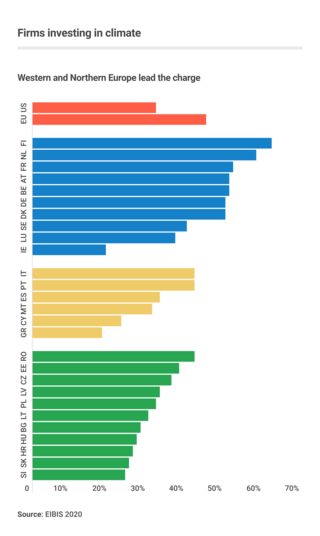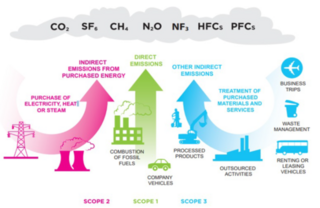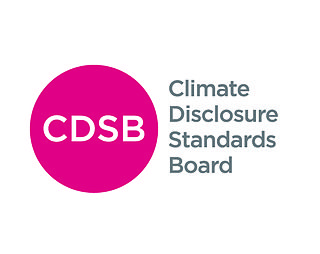A green economy is an economy that aims at reducing environmental risks and ecological scarcities, and that aims for sustainable development without degrading the environment. It is closely related with ecological economics, but has a more politically applied focus. The 2011 UNEP Green Economy Report argues "that to be green, an economy must not only be efficient, but also fair. Fairness implies recognizing global and country level equity dimensions, particularly in assuring a Just Transition to an economy that is low-carbon, resource efficient, and socially inclusive."

Ping An Insurance known also as Ping An of China, full name Ping An Insurance (Group) Company of China, Ltd. is a Chinese holding conglomerate whose subsidiaries provide insurance, banking, asset management, financial, healthcare services. The company was founded in 1988 and is headquartered in Shenzhen. "Ping An" literally means "safe and well".
Corporate transparency describes the extent to which a corporation's actions are observable by outsiders. This is a consequence of regulation, local norms, and the set of information, privacy, and business policies concerning corporate decision-making and operations openness to employees, stakeholders, shareholders and the general public. From the perspective of outsiders, transparency can be defined simply as the perceived quality of intentionally shared information from the corporation.

A carbon footprint (or greenhouse gas footprint) is a calculated value or index that makes it possible to compare the total amount of greenhouse gases that an activity, product, company or country adds to the atmosphere. Carbon footprints are usually reported in tonnes of emissions (CO2-equivalent) per unit of comparison. Such units can be for example tonnes CO2-eq per year, per kilogram of protein for consumption, per kilometer travelled, per piece of clothing and so forth. A product's carbon footprint includes the emissions for the entire life cycle. These run from the production along the supply chain to its final consumption and disposal. Similarly an organization's carbon footprint includes the direct as well as the indirect emissions that it causes. The Greenhouse Gas Protocol that is used for carbon accounting of organizations calls these Scope 1, 2 and 3 emissions. There are several methodologies and online tools to calculate the carbon footprint. They depend on whether the focus is on a country, organization, product or individual person. For example, the carbon footprint of a product could help consumers decide which product to buy if they want to be climate aware. For climate change mitigation activities, the carbon footprint can help distinguish those economic activities with a high footprint from those with a low footprint. So the carbon footprint concept allows everyone to make comparisons between the climate impacts of individuals, products, companies and countries. It also helps people devise strategies and priorities for reducing the carbon footprint.

Business action on climate change includes a range of activities relating to climate change, and to influencing political decisions on climate change-related regulation, such as the Kyoto Protocol. Major multinationals have played and to some extent continue to play a significant role in the politics of climate change, especially in the United States, through lobbying of government and funding of climate change deniers. Business also plays a key role in the mitigation of climate change, through decisions to invest in researching and implementing new energy technologies and energy efficiency measures.
Environmental accounting is a subset of accounting proper, its target being to incorporate both economic and environmental information. It can be conducted at the corporate level or at the level of a national economy through the System of Integrated Environmental and Economic Accounting, a satellite system to the National Accounts of Countries.
Sustainability reporting refers to the disclosure, whether voluntary, solicited, or required, of non-financial performance information to outsiders of the organization. Generally speaking, sustainability reporting deals with information concerning environmental, social, economic and governance issues in the broadest sense. These are the criteria gathered under the acronym ESG.

Ceres is a non-profit sustainability advocacy organization based in Boston, Massachusetts, and founded in 1989. As of May 2017, its president is Mindy Lubber.

Carbon accounting is a framework of methods to measure and track how much greenhouse gas (GHG) an organization emits. It can also be used to track projects or actions to reduce emissions in sectors such as forestry or renewable energy. Corporations, cities and other groups use these techniques to help limit climate change. Organizations will often set an emissions baseline, create targets for reducing emissions, and track progress towards them. The accounting methods enable them to do this in a more consistent and transparent manner.
The Investor Network on Climate Risk (INCR) is a nonprofit organization of investors and financial institutions that promotes better understanding of the financial risks and investment opportunities posed by climate change. INCR is coordinated by Ceres, a coalition of investors and environmental groups working to advance sustainable prosperity.

Socially responsible investing (SRI), social investment, sustainable socially conscious, "green" or ethical investing, is any investment strategy which seeks to consider both financial return and social/environmental good to bring about social change regarded as positive by proponents. Socially responsible investments often constitute a small percentage of total funds invested by corporations and are riddled with obstacles.
Network governance is "interfirm coordination that is characterized by organic or informal social system, in contrast to bureaucratic structures within firms and formal relationships between them. The concepts of privatization, public private partnership, and contracting are defined in this context." Network governance constitutes a "distinct form of coordinating economic activity" which contrasts and competes with markets and hierarchies.
Environmental, social, and corporate governance (ESG) is a set of considerations, including environmental issues, social issues and corporate governance that can be considered in investing.

Climate finance are funding processes for investments related to climate change mitigation and adaptation. The term has been used in a narrower sense to refer to transfers of public resources from developed to developing countries, in light of their UN Climate Convention obligations to provide "new and additional financial resources". In a wider sense, the term refers to all financial flows relating to climate change mitigation and adaptation.

The Climate Disclosure Standards Board (CDSB) is a non-profit organization working to provide material information for investors and financial markets through the integration of climate change-related information into mainstream financial reporting. CDSB operates on the premise that investors and financial institutions can make better and informed decisions if companies are open, transparent and analyse the risks and opportunities associated with climate change-related information. To this end, CDSB acts as a forum for collaboration on how existing standards and practices can be used to link financial and climate change-related information using its Framework for reporting environmental information, natural capital and associated business impacts.
Top contributors to climate change are the companies, sources, and countries on Earth causing climate change through greenhouse gas emissions, which are mainly: Carbon dioxide, Methane, Nitrous oxide and the fluorinated gases bromofluorocarbon, chlorofluorocarbon, hydrochlorofluorocarbon, hydrofluorocarbon, nitrogen trifluoride, perfluorocarbons and sulfur hexafluoride
Sustainable finance is the set of financial regulations, standards, norms and products that pursue an environmental objective. It allows the financial system to connect with the economy and its populations by financing its agents while maintaining a growth objective. The long-standing concept was promoted with the adoption of the Paris Climate Agreement, which stipulates that parties must make "finance flows consistent with a pathway towards low greenhouse gas emissions and climate-resilient development." In addition, sustainable finance had already a key role to play in the European Green Deal and in other EU International agreements, but since the COVID-19 pandemic its role is even more important.

The environmental policy of the Joe Biden administration includes a series of laws, regulations, and programs introduced by United States President Joe Biden since he took office in January 2021. Many of the actions taken by the Biden administration reversed the policies of his predecessor, Donald Trump.
The Task Force on Climate Related Financial Disclosures (TCFD) provides information to investors about what companies are doing to mitigate the risks of climate change, as well as be transparent about the way in which they are governed. It was established in December 2015 by the Group of 20 (G20) and the Financial Stability Board (FSB), and is chaired by Michael Bloomberg. It consists of governance, strategy, risk management, and metrics and targets. It will become mandatory for companies to report on these disclosures by 2025 in the UK, although some companies will have to report earlier.
Paul A. Griffin is an accountant, academic, and author. He is Distinguished Professor Emeritus at the Graduate School of Management, University of California, Davis.









